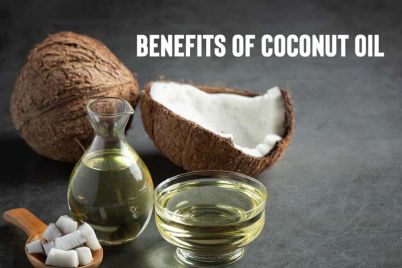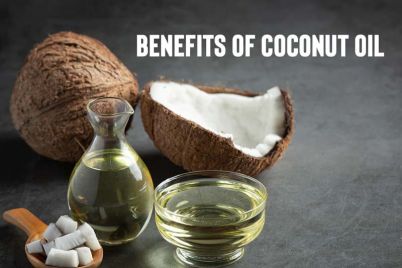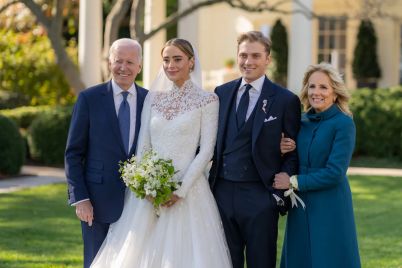A charming country located partly in Europe and partly in Asia, Turkey has a rich history influenced by both continents while acting as a link between them. And apart from its dramatic history, this country has an important thing to offer – beauty.
What’s Beautiful in Turkey?
Turkish women are famously considered beautiful, but the country’s beauty standards and ideals vary from region to region.
Fair, Olive, and Tanned Skin
In general, Turkish beauty standards tend to favor fair, olive, or tanned skin, depending on the area.
The Black Sea region, for example, is known for its fair-skinned people that look like Balkan Slavs and have fair skin, blonde or light brown hair, and blue, green, or hazel eyes.
Cities like İstanbul or İzmir are more diverse; therefore, it’s not surprising that the regions have a stronger preference for Southern European features, such as fair or olive skin and dark brown or black hair.
In some Anatolian provinces, on the other hand, tanned or darker skin, dark, almond-shaped eyes, and long dark hair with strong facial features such as thick, arched eyebrows, straight noses, well-defined jawlines, pointed chins, and laterally fuller cheeks are considered beautiful. People living in these areas tend to appreciate a naturally feminine and fuller figure instead of an overly toned body.
You can tell that these regions tend to flock toward Middle Eastern features as the preferred beauty ideal.
Flattering Makeup
Makeup is super popular among Turkish women, with many using it to enhance their natural beauty. Natural and minimal looks are mostly favored over heavily applied makeup, and a little bit of eyeliner, mascara, and blush is generally considered appropriate for most occasions.
However, despite having a clear preference for lighter makeup, many Turkish women enjoy experimenting with heavier looks, especially when it comes to celebrating events such as birthdays, religious celebrations, and weddings when many opt for creative looks that consist of heavy eye makeup, especially eyeliner and kohl to accentuate their eyes further.
“At first, I was shocked to see all that makeup,” says Shelley Lashley, a British-born makeup artist who’s lived in Istanbul for several years. “Even brides want sexy, smoky eyes. I was so used to the virginal look for weddings, but things are so different here,” she told Marie Claire.
Good Hair Is a Priority
Hair – a truly universal priority for women, especially Turkish women, a majority of whom make weekly salon visits for blowouts and hair-strengthening treatments.
When it comes to hairstyles, Turkish beauty ideals tend to favor healthy, bouncy, and curly or wavy hair over straight hair.
The preference for hair color varies from region to region. Some women in eastern Turkey prefer dyeing their hair blonde, and lighter hair colors are generally more popular, while other parts of the country are die-hard brunettes.
Casual Dressing and Modesty
While beauty standards in Turkey might vary depending on the region, there are a few constants regarding fashion and dress code.
Turkish women have a reputation for being modest dressers, and most tend to go for casual, feminine, and flowy styles that feel comfortable and allow them to move around easily. Skirts, dresses, and blouses are the norm, and trousers or jeans are generally considered too casual or masculine for most occasions. In rural areas, women traditionally wear long skirts and cover their hair with headscarves as these regions favor simplicity and modesty even more than the modern cities do.
As for accessories, women in Turkey love to pile on the jewelry, with statement necklaces, earrings, and rings being particularly popular. This is especially true for weddings and other special occasions when many women go all out with their looks, wearing the most beautiful and extravagant dresses and jewelry they can find.
6 Beauty Secrets Turkish Women Swear By
Turkish women take great pride in their appearance and apply various beauty products and practices to look their best.
Some of the most popular beauty secrets Turkish women swear by include:
Rosewater Cleanser
Rosewater is a natural cleanser that helps remove makeup, dirt, and oil from the skin while restoring the pH balance and leaving the skin feeling refreshed and hydrated. Rosewater can be bought at any beauty store or pharmacy, but many Turkish women prefer making their own cleansers by boiling rose petals in water and straining the liquid. Additionally, Turkish women often use a cold compress made of rosewater to minimize pores and reduce irritation.
Sugaring
Sugaring is a hair removal method popular in Turkey and many other parts of the world. This all-natural paste is easy to make with ingredients from the kitchen, such as sugar, lemon, and water, and, like waxing, it removes body hair by quickly pulling the hair from the root. Sugaring is more sanitary and less painful than traditional waxing methods and leaves the skin feeling softer and smoother. Turkish women often use sugaring as it’s affordable, easy to do at home, and the results last for weeks.
Hammam Baths
Hammam baths, also known as Turkish baths, are a popular beauty treatment in Turkey due to their ability to improve the skin’s appearance, circulation, and general wellbeing.
During a hammam bath, you will be scrubbed down with soap and a rough cloth before being rinsed off with warm water. This exfoliation will remove dead skin cells, leaving the skin feeling soft, clean, and refreshed. Hammam baths are often considered a spiritual experience and are a popular way to relax and rejuvenate both mind and body.
Hazelnut Oil
Hazelnut fields, widely spread along the Black Sea coasts of Turkey, make this country responsible for 75% of the global hazelnut oil production and exportation. So it’s not a surprise that the oil that’s rich in vitamins and fatty acids is also among the most popular skincare products in a Turkish woman’s beauty regimen. Hazelnut oil is often used as a natural face moisturizer, as it helps keep the skin looking plump, soft, and youthful.
Henna
Henna has been a popular beauty item since the times of the Ancient Egyptians and is still widely used in the modern world.
In Ottoman times, henna was used in harems for body art and other practical uses, such as tracking your period and ovulation. Young women would go to the traditional baths to purify themselves after their periods before applying henna to their hair and various parts of the body for decoration. As the dye’s color reached its deepest shades, this was a sign that a woman was at her peak for conceiving.
And while those times are long gone, henna is still used and preferred by many Turkish women, mainly as a hair dye, due to the naturally beautiful shades it provides without damaging the hair.
Local Produce-Based Diet
Turkish women often credit their beauty to the country’s healthy and delicious food, which is packed with antioxidants, vitamins, and minerals. Much like the typical Mediterranean diet, Turkish cuisine consists of local produce, fresh fish, and plenty of olive oil, plus breads and sweets like sütlaç (rice pudding) or buttery baklava at most meals. This diet provides the skin with everything it needs to stay healthy and glowing, and the high level of antioxidants helps protect the skin from free radical damage and premature aging.
In addition to eating well, Turkish women also enjoy regular exercise, but they aren’t super fond of gyms. Instead, they prefer hiking in the beautiful mountain ranges or swimming in the sparkling seas that surround the country.
Closing Thoughts
Turkish women take their beauty seriously and have tried and true methods for looking and feeling their best. From traditional baths and scrubs to local produce-based diets and natural oils, there are plenty of beauty secrets that Turkish women can share with the world.
Source by: https://www.eviemagazine.com/post/beauty-standards-around-the-world-turkey




